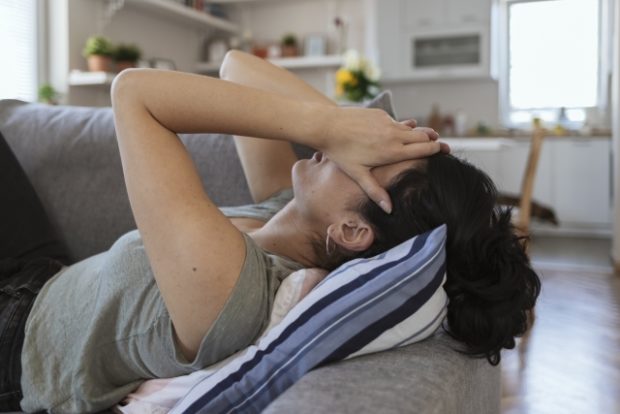
Women’s sleep has been more affected by the pandemic and containment than that of men, one study reveals. Image: Getty Images/PixelsEffect via AFP Relaxnews.
The effects of lockdown were different for men and women. A study conducted by Canadian researchers found that women suffered more from the period of social distancing associated with COVID-19, particularly in terms of sleep, anxiety, depression and trauma.
Researchers at the University of Calgary, in collaboration with the Hotchkiss Brain Institute, looked at the sleep, state of mind, and mental health disorders of men and women during the months of lockdown, looking specifically at gender differences. An online survey was conducted among 573 Canadians — 112 men and 459 women — with an average age of 25.9 years between March 23 and June 7, 2020.
Their work, published in Frontiers in Global Women’s Health on Oct. 23, revealed that more than two-thirds of participants reported poor sleep quality during lockdown, and more than 39% reported an increase in symptoms related to insomnia, while anxiety and feelings of distress increased in the overall sample. Last but not least, symptoms related to sleep, depression and anxiety were more common among women.
“Generally, the study found women reporting more anxiety and depression. Their symptoms worsened over time and with greater length of the isolation period. There was a progressive increase in anxiety, depression, poor sleep quality and trauma for males and females. But it was greater for females over time,” said Dr. Veronica Guadagni of the Cumming School of Medicine at the University of Calgary.
The study also shows a higher level of empathy among women, noting that it was primarily about the ability to understand emotions and care for others. These high levels of empathy, however, were associated with high levels of anxiety, depression and trauma.
“I was not surprised by the findings; women are the ones who carry the additional load. Taking care of family and critical situations has always been a huge load on women and females,” said Dr. Giuseppe Iaria, co-author of the study.
Researchers now want to look more closely at these gender differences in order to develop targeted psychological interventions to help men and women cope with the pandemic. CC
RELATED STORIES:
NCMH sees growing anxiety, feelings of sadness among hotline callers
Mental health toll of pandemic ‘devastating’ – WHO